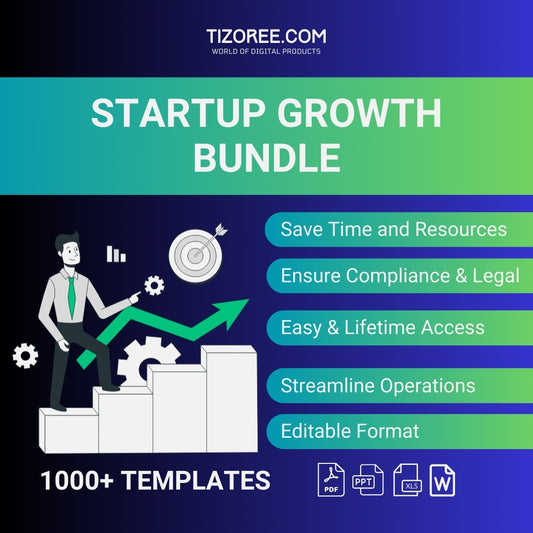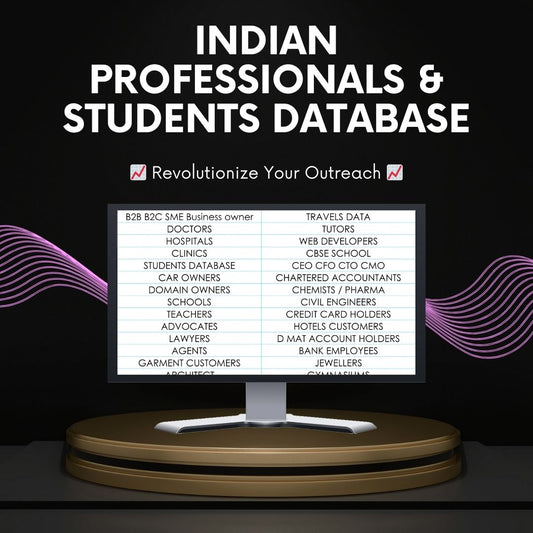எஸ்சிஓவைப் புரிந்துகொள்வது: ஒரு விரிவான வழிகாட்டி
பகிர்
எஸ்சிஓ என்றால் என்ன?
தேடுபொறி உகப்பாக்கம் (SEO) என்பது தேடுபொறி முடிவுகள் பக்கங்களில் (SERPs) கரிம போக்குவரத்தை அதிகரிப்பதற்கான ஒரு முக்கிய நடைமுறையாகும். இது பொதுவாக ஆர்கானிக் தேடல் அல்லது பட்டியல்கள் என குறிப்பிடப்படுகிறது. நீங்கள் விரும்பும் முக்கிய வார்த்தைகளுக்கு முதலிடத்தைப் பெற, பயனுள்ள SEO உத்திகளைப் பயன்படுத்துவது அவசியம்.
எஸ்சிஓ வகைகள்
எஸ்சிஓவில் இரண்டு முதன்மை வகைகள் உள்ளன: ஆன்-பேஜ் எஸ்சிஓ மற்றும் ஆஃப்-பேஜ் எஸ்சிஓ. உங்கள் வலைத்தளத்தின் தெரிவுநிலை மற்றும் தேடுபொறிகளில் தரவரிசையை மேம்படுத்துவதில் ஒவ்வொன்றும் முக்கிய பங்கு வகிக்கிறது.
ஆன்-பேஜ் எஸ்சிஓ
ஆன்-பேஜ் எஸ்சிஓ என்பது நீங்கள் கட்டுப்படுத்தக்கூடிய உங்கள் வலைத்தளத்தின் பல்வேறு கூறுகளை மேம்படுத்துவதை உள்ளடக்குகிறது. உள்ளடக்கத்தின் தரம், முக்கிய வார்த்தைகளின் பயன்பாடு மற்றும் HTML குறிச்சொற்கள் போன்ற அம்சங்கள் இதில் அடங்கும். தேடுபொறிகளுக்கு உங்கள் வலைத்தளத்தை மிகவும் கவர்ச்சிகரமானதாக மாற்றுவதே குறிக்கோள்.
- உள்ளடக்கத் தரம்: தொடர்புடைய மற்றும் தகவல் தரக்கூடிய உயர்தர உள்ளடக்கம் உங்கள் SEO முயற்சிகளை கணிசமாக மேம்படுத்தும்.
- திறவுச்சொல் உகப்பாக்கம்: உங்கள் உள்ளடக்கம் முழுவதும் இலக்கு முக்கிய வார்த்தைகளைப் பயன்படுத்துவது தேடுபொறிகள் உங்கள் பக்கத்தின் மையத்தைப் புரிந்துகொள்ள உதவுகிறது.
- HTML குறிச்சொற்கள்: தலைப்புக் குறிச்சொற்கள், தலைப்புக் குறிச்சொற்கள் மற்றும் மெட்டா விளக்கங்களைச் சரியாகப் பயன்படுத்துவதன் மூலம் உங்கள் தளத்தின் தெரிவுநிலையை மேம்படுத்தலாம்.
ஆஃப்-பேஜ் எஸ்சிஓ
வெளிப்புற காரணிகள் மூலம் தேடல் முடிவுகளில் உங்கள் தளத்தின் நிலையை மேம்படுத்துவதில் பக்கம் இல்லாத SEO கவனம் செலுத்துகிறது. பின்னிணைப்புகளை உருவாக்குதல், டொமைன் அதிகாரத்தை மேம்படுத்துதல் மற்றும் பிராண்ட் விழிப்புணர்வை அதிகரிப்பது ஆகியவை இதில் அடங்கும்.
- பின்னிணைப்புகள்: புகழ்பெற்ற தளங்களில் இருந்து தரமான பின்னிணைப்புகள் உங்கள் உள்ளடக்கம் நம்பகமானது என்று தேடுபொறிகளுக்கு சமிக்ஞை செய்கிறது.
- டொமைன் அத்தாரிட்டி: வலுவான டொமைன் அதிகாரத்தை உருவாக்குவது ஒட்டுமொத்த நம்பகத்தன்மையையும் தரவரிசையையும் மேம்படுத்தலாம்.
- பிராண்ட் விழிப்புணர்வு: பிராண்ட் தெரிவுநிலையை அதிகரிப்பது, உங்கள் தளத்தில் அதிக தேடல்கள் மற்றும் போக்குவரத்திற்கு வழிவகுக்கும்.
எஸ்சிஓ எப்படி வேலை செய்கிறது?
தேடுபொறிகளுக்கு மிகவும் கவர்ச்சிகரமானதாக உங்கள் வலைத்தளத்தை மேம்படுத்துவதன் மூலம் SEO செயல்படுகிறது. தேடுபொறிகள் உங்கள் தளத்தை வலைவலம் செய்யும் போது, உங்கள் பக்கங்களை எவ்வாறு தரவரிசைப்படுத்துவது என்பதைத் தீர்மானிக்க உள்ளடக்கம், முக்கிய வார்த்தைகள் மற்றும் இணைப்புகளை ஆய்வு செய்கின்றன. உங்கள் தளம் எவ்வளவு உகந்ததாக இருக்கிறதோ, அந்த அளவுக்கு அது தேடல் முடிவுகளில் உயர்ந்த இடத்தைப் பெறும்.
எஸ்சிஓவின் முக்கிய கூறுகள்
எஸ்சிஓவை திறம்பட செயல்படுத்த, பல முக்கிய கூறுகளில் கவனம் செலுத்துங்கள்:
- முக்கிய வார்த்தை ஆராய்ச்சி: உங்கள் இலக்கு பார்வையாளர்கள் தேடும் தொடர்புடைய முக்கிய வார்த்தைகளை அடையாளம் காணவும்.
- உள்ளடக்க உருவாக்கம்: உங்கள் இலக்கு முக்கிய வார்த்தைகளை உள்ளடக்கிய உயர்தர, ஈர்க்கக்கூடிய உள்ளடக்கத்தை உருவாக்குங்கள்.
- இணைப்பு உருவாக்கம்: உங்கள் இடத்தில் உள்ள புகழ்பெற்ற தளங்களிலிருந்து பின்னிணைப்புகளைப் பெறுவதற்கான உத்தியை உருவாக்கவும்.
- டெக்னிக்கல் எஸ்சிஓ: வேகமாக ஏற்றும் நேரம் மற்றும் மொபைல் ஆப்டிமைசேஷன் உட்பட, உங்கள் இணையதளம் தொழில்நுட்ப ரீதியாக சிறந்ததாக இருப்பதை உறுதிசெய்யவும்.
- பயனர் அனுபவம் (UX): பார்வையாளர்களை ஈடுபாட்டுடன் வைத்திருக்க உங்கள் தளத்தில் ஒட்டுமொத்த பயனர் அனுபவத்தை மேம்படுத்தவும்.
ஆன்-பேஜ் எஸ்சிஓவிற்கான சிறந்த நடைமுறைகள்
ஆன்-பேஜ் எஸ்சிஓவிற்கான சிறந்த நடைமுறைகளை செயல்படுத்துவது உங்கள் தேடுபொறி தரவரிசையை கணிசமாக உயர்த்தும். இதோ சில அத்தியாவசிய குறிப்புகள்:
- தலைப்பு குறிச்சொற்கள்: உங்கள் தலைப்பு குறிச்சொற்கள் விளக்கமானவை மற்றும் உங்கள் முதன்மை முக்கிய சொல்லை உள்ளடக்கியது என்பதை உறுதிப்படுத்தவும்.
- மெட்டா விளக்கங்கள்: கிளிக் செய்ய பயனர்களை ஊக்குவிக்கும் அழுத்தமான மெட்டா விளக்கங்களை எழுதுங்கள்.
- தலைப்பு குறிச்சொற்கள்: உங்கள் உள்ளடக்கத்தை கட்டமைக்க தலைப்பு குறிச்சொற்களை (H1, H2, H3) பயன்படுத்தவும் மற்றும் பொருத்தமான இடங்களில் முக்கிய வார்த்தைகளைச் சேர்க்கவும்.
- பட உகப்பாக்கம்: படத் தேடல்களில் தெரிவுநிலையை மேம்படுத்த, விளக்கக் கோப்புப் பெயர்கள் மற்றும் படங்களுக்கு மாற்று உரையைப் பயன்படுத்தவும்.
- உள் இணைப்பு: வழிசெலுத்தலை மேம்படுத்தவும் பயனர்களை ஈடுபாட்டுடன் வைத்திருக்கவும் உங்கள் தளத்தில் உள்ள பிற தொடர்புடைய பக்கங்களை இணைக்கவும்.
ஆஃப்-பேஜ் எஸ்சிஓவிற்கான சிறந்த நடைமுறைகள்
உங்கள் ஆஃப்-பேஜ் எஸ்சிஓவை மேம்படுத்த, பின்வரும் உத்திகளைக் கவனியுங்கள்:
- சமூக ஊடக ஈடுபாடு: தெரிவுநிலையை அதிகரிக்கவும் போக்குவரத்தை அதிகரிக்கவும் சமூக ஊடக தளங்களில் உங்கள் உள்ளடக்கத்தை விளம்பரப்படுத்தவும்.
- விருந்தினர் பிளாக்கிங்: பின்னிணைப்புகளைப் பெறுவதற்கும், உங்கள் பிராண்டைப் புதிய பார்வையாளர்களுக்கு வெளிப்படுத்துவதற்கும் உங்கள் இடத்தில் உள்ள புகழ்பெற்ற வலைப்பதிவுகளுக்கு விருந்தினர் இடுகைகளை எழுதுங்கள்.
- செல்வாக்கு செலுத்துபவர் அவுட்ரீச்: பரந்த பார்வையாளர்களை அடைய உங்கள் துறையில் செல்வாக்கு செலுத்துபவர்களுடன் ஒத்துழைக்கவும்.
- ஆன்லைன் மதிப்புரைகள்: திருப்திகரமான வாடிக்கையாளர்களை நேர்மறையான மதிப்புரைகளை வெளியிட ஊக்குவிக்கவும், இது உங்கள் நம்பகத்தன்மையை மேம்படுத்தும்.
பயனுள்ள எஸ்சிஓ கருவிகள்
சரியான கருவிகளைப் பயன்படுத்துவதன் மூலம் உங்கள் எஸ்சிஓ முயற்சிகளை நெறிப்படுத்தலாம் மற்றும் மதிப்புமிக்க நுண்ணறிவுகளை வழங்கலாம்:
- Google Analytics: மேம்பாட்டிற்கான பகுதிகளை அடையாளம் காண உங்கள் வலைத்தளத்தின் செயல்திறன் மற்றும் பயனர் நடத்தை ஆகியவற்றைக் கண்காணிக்கவும்.
- Google Search Console: தேடல் முடிவுகளில் உங்கள் தளத்தின் இருப்பைக் கண்காணித்து, அட்டவணைப்படுத்தல் சிக்கல்களைக் கண்டறியவும்.
- முக்கிய வார்த்தை ஆராய்ச்சி கருவிகள்: SEMrush அல்லது Ahrefs போன்ற கருவிகளைப் பயன்படுத்தி தொடர்புடைய முக்கிய வார்த்தைகளைக் கண்டறிந்து போட்டியை பகுப்பாய்வு செய்யுங்கள்.
- SEO செருகுநிரல்கள்: WordPress ஐப் பயன்படுத்தினால், Yoast SEO போன்ற செருகுநிரல்கள் உங்கள் உள்ளடக்கத்தை எளிதாக மேம்படுத்த உதவும்.
முடிவுரை
எஸ்சிஓ உத்திகளைப் புரிந்துகொள்வதும் செயல்படுத்துவதும் உங்கள் ஆன்லைன் இருப்பை மேம்படுத்துவதற்கும் உங்கள் இணையதளத்திற்கு ஆர்கானிக் டிராஃபிக்கை இயக்குவதற்கும் முக்கியமானது. ஆன்-பேஜ் மற்றும் ஆஃப்-பேஜ் எஸ்சிஓ நுட்பங்கள் இரண்டிலும் கவனம் செலுத்துவதன் மூலம், தேடுபொறி முடிவுகள் பக்கங்களில் உங்கள் வலைத்தளத்தின் தரவரிசையை கணிசமாக மேம்படுத்தலாம்.
நீங்கள் ஒரு தொடக்கநிலையாளராக இருந்தாலும் அல்லது உங்கள் திறமைகளை மேம்படுத்த விரும்பினாலும், எஸ்சிஓவில் தேர்ச்சி பெறுவது உங்கள் வணிகத்திற்கு கணிசமான வெகுமதிகளை அளிக்கக்கூடிய தொடர்ச்சியான பயணமாகும்.



